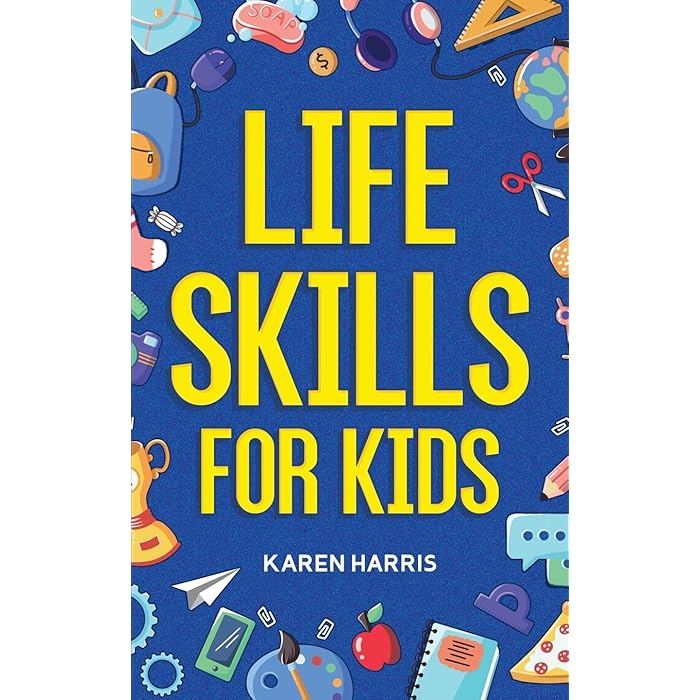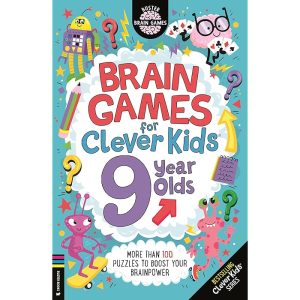Description
Teaching life skills to kids is essential for helping them develop the ability to manage themselves, interact effectively with others, and thrive in the world. These skills are important not only for their personal growth but also for their success in school, relationships, and future careers. Here’s a list of key life skills that are valuable for children:
### 1. **Communication Skills**
– **Verbal Communication**: Teach kids how to express their thoughts and feelings clearly and respectfully. Encourage them to practice active listening and to engage in meaningful conversations.
– **Non-Verbal Communication**: Help them understand body language, facial expressions, and tone of voice.
– **Conflict Resolution**: Show how to resolve disagreements in a calm and respectful manner, using “I” statements rather than blaming others.
### 2. **Self-Discipline and Time Management**
– **Following a Routine**: Help kids establish daily routines that balance schoolwork, playtime, and rest.
– **Setting Goals**: Teach how to set short-term and long-term goals, and break them down into manageable tasks.
– **Managing Time**: Use tools like planners or timers to teach kids how to prioritize and manage their time effectively.
### 3. **Financial Literacy**
– **Basic Money Management**: Teach kids about saving, budgeting, and the concept of earning money through chores or small jobs.
– **Understanding Needs vs. Wants**: Help them distinguish between what they need (essentials) and what they want (desires).
– **Saving and Giving**: Encourage saving a portion of their money and giving to charity or helping others.
### 4. **Problem-Solving and Critical Thinking**
– **Making Decisions**: Help kids practice making decisions by discussing different options and outcomes.
– **Creative Thinking**: Encourage out-of-the-box thinking and experimentation in solving problems.
– **Evaluating Consequences**: Teach kids to consider the consequences of their actions, both immediate and long-term.
### 5. **Self-Care and Hygiene**
– **Personal Hygiene**: Teach basic hygiene routines like brushing teeth, washing hands, and taking baths or showers.
– **Healthy Eating**: Educate about the importance of nutrition, balanced diets, and eating in moderation.
– **Exercise and Rest**: Encourage regular physical activity and the importance of adequate sleep for health.
### 6. **Social Skills**
– **Making Friends**: Help kids develop empathy and teach how to approach others in a friendly manner.
– **Teamwork**: Encourage group activities like sports or collaborative projects to build cooperation and teamwork skills.
– **Respect and Boundaries**: Teach kids how to respect others’ personal space, feelings, and boundaries.
### 7. **Emotional Intelligence**
– **Identifying Emotions**: Help kids understand and name their emotions, and the emotions of others.
– **Managing Emotions**: Teach strategies for managing strong emotions like anger, frustration, or sadness (e.g., deep breathing, counting to 10).
– **Building Resilience**: Help kids bounce back from setbacks and learn how to persevere through challenges.
### 8. **Responsibility and Accountability**
– **Chores and Tasks**: Assign age-appropriate responsibilities like tidying up, feeding pets, or helping with meal prep.
– **Owning Mistakes**: Teach that making mistakes is part of learning and how to take responsibility for them without making excuses.
– **Being Reliable**: Encourage follow-through on commitments and keeping promises.
### 9. **Safety and Emergency Preparedness**
– **Recognizing Dangerous Situations**: Teach kids how to recognize unsafe situations and what to do (e.g., avoid talking to strangers, fire safety).
– **Basic First Aid**: Teach how to treat minor injuries like cuts or scrapes and when to seek help from an adult.
– **Emergency Numbers**: Ensure kids know important phone numbers (like 911) and how to seek help in an emergency.
### 10. **Digital Literacy and Responsibility**
– **Using Technology Wisely**: Teach safe and responsible use of devices like phones, computers, and tablets.
– **Online Etiquette**: Encourage respectful and kind behavior in digital communications, including not sharing personal information with strangers.
– **Critical Consumption of Media**: Help kids evaluate the content they see online and encourage critical thinking about advertisements, news, and social media.
### 11. **Independence**
– **Making Choices**: Give kids the opportunity to make their own choices, whether it’s picking their clothes, what to eat, or how to spend their free time.
– **Taking Initiative**: Encourage kids to start projects or take action when something needs to be done without waiting for instructions.
– **Self-Motivation**: Help children learn to be self-starters, from completing homework to pursuing their interests.
### 12. **Creative Expression and Hobbies**
– **Developing Interests**: Encourage children to explore various activities like painting, playing music, or writing.
– **Self-Expression**: Help kids develop ways to express their thoughts and creativity through art, journaling, or other activities.





Reviews
There are no reviews yet.